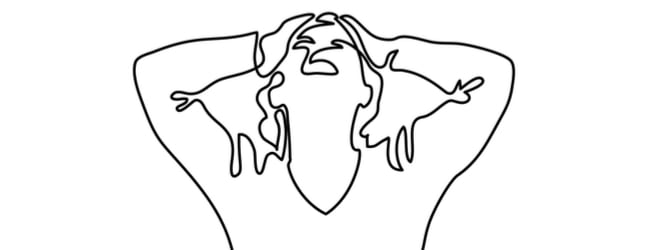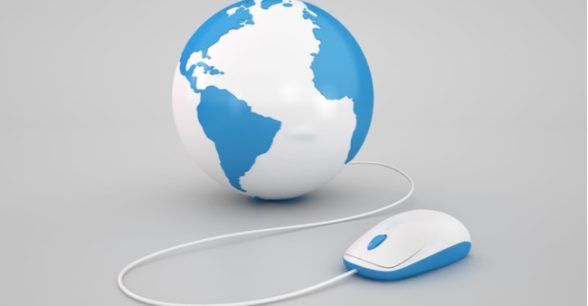First Doctors Told Me My Pain Was All In My Head, Then They Told Me I Would Die
My disability requires me to carry memory foam pillows with me everywhere I go. My disability is invisible — the pillows are not.
At a recent cardiology appointment, a nurse made fun of my memory foam pillows, assuming I was a “lazy, stuck up princess” rather than a patient with vasculitis whose veins break easily and often (the pillows act as a shield between my veins and hard surfaces when I sit down — attempting to prevent internal bleeding).
This wasn’t the first time my autoimmune disease — and the chronic pain it causes — was dismissed. I started experiencing painful autoimmune disease symptoms when I was seven, but it took a decade for doctors to take them seriously.
When I repeatedly woke up in the morning to find an eye swollen shut, my pediatrician said it was from spider bites (though I now know it was from angioedema, a swelling that in recent years overtook my throat, landing me in the ER because I couldn’t breathe).
As a child, when I went to the doctor with painful red welts on my legs, I was told to use a dye-free detergent to avoid a rash that, when I was in college, doctors discovered was not a rash at all, but vasculitis — causing blood splatters under my skin.
What I now know was chronic fatigue from my immune system repeatedly attacking itself, was deemed deliberate delinquency by teachers and principals alike. I missed so much school my last year of junior high that I was forced into homeschooling.
I gained admittance into a liberal arts high school, only to be banished to a school of bad seeds toward the end of my first year — despite having straight As — because I was missing too much school. My mom and I had to appear before the school board and plead to be let back in.
When my mom fought my case, the school board thought she was lying — using my being sick as a ruse for what they’d determined was juvenile delinquency. If I were really so sick, they said, then what did I have? Why didn’t I have a doctor’s note proving it?
Of course we couldn’t answer. Doctors said I wasn’t sick except for bad allergies.
And I was too shy to argue. When changing my detergent didn’t help, I was told to wear all-natural fabric. When I still got giant welts — which often caused my legs to swell to double their size — I was told I must just have “really sensitive skin” (not exactly a revelation — or a helpful medical diagnosis). When I asked doctors why the red welts turned into long-lasting bruises and why it was so horribly painful, doctors told me I was “too young” to be in so much pain.
Remarkably, that inane statement did nothing to actually reduce my pain level. Nor did doctors telling me I was “too pretty” to be in so much pain which, according to the National Pain Report, is a common excuse used by doctors when “diagnosing” — and denying treatment — for women in pain.
I was finally allowed re-admittance to my high school only if I promised not to be late or absent.
So I covered my legs with jeans to hide my swollen red and purple skin, got used to pain being my constant companion, and graduated with honors.
By the time I was finally diagnosed with an autoimmune disease in college, my condition had gone untreated for so long — and progressed so detrimentally — that doctors told me I had the worst blood results they’d ever seen and I was going to die unless I received immediate treatment. Quite a shocking turnaround — from “it’s all in your head” to “you’re going to die”.
I’m still alive, proving doctors wrong on both counts.
Although I have permanent nerve damage because it took so long for doctors to take my symptoms seriously. Sometimes I wonder if society would treat me differently if I had a more visible disability. If I carried a cane or used a walker, would I elicit more sympathy — or at least less mockery — than I experience walking around with (often faded and mismatched) memory foam pillows? I can’t answer that question because I can’t judge anyone’s experience, anyone’s disability, but my own. But what I will say is this: it’s easy to make fun of someone who carries pillows as accessories, but should not be so easy for the medical community to deny women’s pain.
About Rooted In Rights
Rooted in Rights exists to amplify the perspectives of the disability community. Blog posts and storyteller videos that we publish and content we re-share on social media do not necessarily reflect the opinions or values of Rooted in Rights nor indicate an endorsement of a program or service by Rooted in Rights. We respect and aim to reflect the diversity of opinions and experiences of the disability community. Rooted in Rights seeks to highlight discussions, not direct them. Learn more about Rooted In Rights




Frustrating, discouraging and down right disheartening to have those so called healers be poor practitioners.
Thank you for empathizing with my plight to receive proper treatment for my pain and to not be discounted because of my gender or physical appearance. I wish I could say that after a decade of being disbelieved — and doctors FINALLY discovering my autoimmune disease — that things are better, but too often my pain is STILL dismissed by misogynistic doctors who don’t care to look at my medical records — and beyond their medical bias. I hope that by speaking up and sharing my story, other women will do the same. If my pain had been believed and treated two decades ago, there is a very good chance I wouldn’t need opioid pain medication to manage my off-the-charts pain level today. It’s unconscionable that so many women have to suffer because of doctors who would prefer to call them crazy than take the time to research their symptoms and order tests. I vow to keep speaking up until the gender bias in medicine is addressed — and eradicated. Thank you so much for your support.
This is a powerful — and damning — piece.
I know the author — she is my daughter — and i have witnessed the truth of every syllable Brijana writes.
The article hangs out to dry — with amazing grace — the community of medical professionals who chose to ignore her illness for more than a decade. A community who too often continues to discount her symptoms because she finds the strength to smile more often than cry at doctor appointments and the courage to demand better care than she receives.
If you ever — or regularly — feel ignored or diminished when you visit your doctor, reread this article before you next appointment. It will inspire you to stand up for your rights and get the medical help you deserve..
Thank you so much for your words that touch my heart immensely. If what I wrote helps anyone find the strength to speak out against medical mistreatment and demand proper care, I will be extraordinarily happy. The gender bias that exists in medicine seems way too archaic to exist in 2018, yet I encounter it on a monthly basis, and it is appalling I truly believe that the more women speak up and say this happens to “me too” the faster the medical community will have to abolish its outdated, misogynistic way of practicing medicine.
So well said Brijana! If it weren’t for the advent of pervasive social media I’ll bet this message would still be unshared with the people who need to see it. Your article should be mandatory reading for nursing and medical students; and maybe it should be presented by some of the patients who have suffered due to this kind of arrogant neglect. Something powerful enough to make a lasting impact so that the professionals twice before dismissing someone’s complaints and concerns. Doctors sometimes become hardened and jaded and they need to be reminded that they are treating human beings who deserve to be heard and believed and treated well as ALL patients deserve. Thanks Brijana.
Thank you so very, very much, Janice, for your thoughtful comment and kind words. Especially for saying that what I wrote should be mandatory reading for nursing and medical students! That means a lot to me because my purpose for writing this is to create change — to prevent others from going through the physical and emotional turmoil of being dismissed and disbelieved like I was (and often still am). The gender bias in medicine is all too real. Women who say they’re in pain are so much more likely to be dismissed — or told they’re “crazy” — whereas men’s pain is taken so much more seriously and treated so much more promptly, as though it may actually be a matter of life and death. I will keep writing and keep speaking up until women’s pain and health concerns are taken seriously. Thank you for adding so much depth to the discussion.